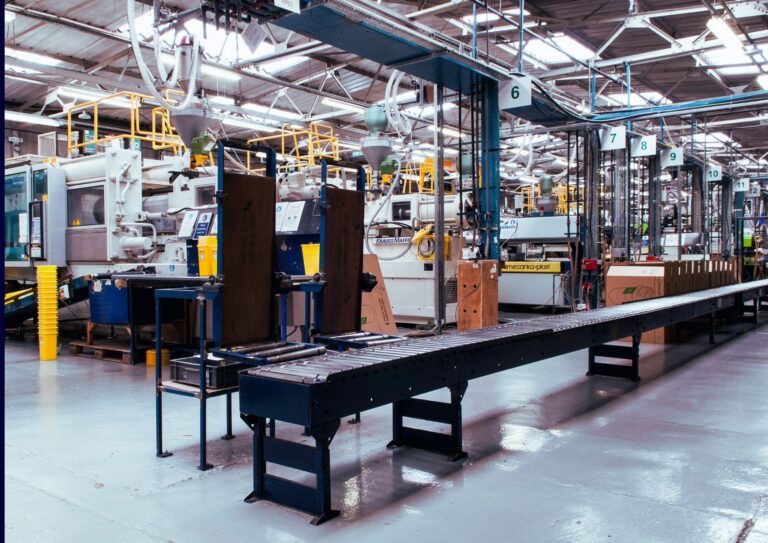Virtual reality in staff training: Advantages and opportunities
In our daily lives, it is increasingly difficult not to notice the influence of new technologies. From industrial to commercial sectors, digital transformation is used to optimize processes and increase efficiency. In this context, one of the most promising and innovative technologies is virtual reality (VR). Not only does VR change the way we play and have fun, but it also provides real-world application opportunities in the business environment. Staff training is one aspect where virtual reality can make a significant contribution to process quality and efficiency.
In our article we will focus on how virtual reality can be used in staff training, and more specifically how this technology can find application in the industrial sector of Rousse. Explore with us the benefits that VR offers, such as increased engagement, safety and convenience, as well as the possibilities for local application in various industries, such as manufacturing, trade and logistics.
Now that you have an idea of what we're going to cover, let's get into the details and find out how virtual reality can become a key tool in training your employees and achieving business success.
Benefits of VR in staff training
From accelerated and more effective training to creating a safe simulated environment, virtual reality offers a number of benefits that can significantly increase your organization's productivity and efficiency. Let's look at some of these aspects in more detail.
Increased engagement and retention
Virtual reality offers an immersive experience that contributes to better recall and greater employee engagement. This high degree of engagement enables 'learning by doing', which greatly improves the quality of learning. Employees not only hear or read information, but also actively participate in simulated scenarios, which supports long-term retention and practical applicability of what they learn.
Safety and simulation of real situations
VR training allows the simulation of dangerous or complex situations in a controlled environment, which is of particular importance for industries such as the chemical industry or transport. Through virtual reality, employees can prepare for real hazards without the risk of injury or damage. This not only increases the level of safety, but can also reduce training costs by avoiding the need to use real materials or equipment.
Convenience and flexibility
Virtual reality training can take place anytime and anywhere, offering great flexibility for both employers and employees. There is no need for specialized premises or expensive materials. Also, VR training can be customized, allowing employees to move through modules at their own pace and in relation to the specific needs of their job role.
Application possibilities in Ruse
Having considered the advantages of virtual reality in personnel training, it is time to focus our attention on the concrete possibilities of application of this innovative technology in the industrial and business profile of Rousse. Here we will look at how VR can contribute to the development of key sectors such as manufacturing, industry, trade and logistics, which are fundamental to the region's economy.
Manufacturing and industry
Virtual reality offers extensive application possibilities in the manufacturing and industrial sectors in Ruse, especially in the fields of mechanical engineering, chemical industry and metallurgy. For example, staff can be trained in simulated production environments where different techniques and methods can be tried without the risk of accidents or losses. This not only increases safety, but also allows employees to develop skills that can be directly applied in the real work environment, leading to higher efficiency and productivity.
Trade and logistics
In the trade and logistics sector, virtual reality can play a key role, especially in the context of Ruse, where wholesale trade and logistics activities make a significant contribution to the economy. Employees can train in virtual warehouse spaces where they can learn best practices for inventory management and optimization of warehouse operations. Also, VR can be used to simulate sales scenarios, which helps sales representatives prepare for real customer situations, thereby increasing the quality of service and increasing sales.
Conclusion
In conclusion, virtual reality offers revolutionary opportunities for training and development of personnel in various industrial and commercial sectors. The strategic application of technology can contribute to the optimization of work processes, increase safety and accelerate the integration of new employees.
The Ruse Chamber of Commerce and Industry is committed to helping the local business community adapt to new technologies. Through our initiatives, trainings and webinars, we aim to provide you with practical tools and knowledge that will help you unlock the full potential of VR in your organization.
This material was prepared in connection with the project Be-Digital, which aims to identify and address digital supply chain needs and opportunities. The project offers innovative solutions and educational programs aimed at improving the digital competences of future and current professionals in the sector.
Contact us to learn more about upcoming events and the resources we can offer to support your organization in this exciting period of technological change and innovation.






